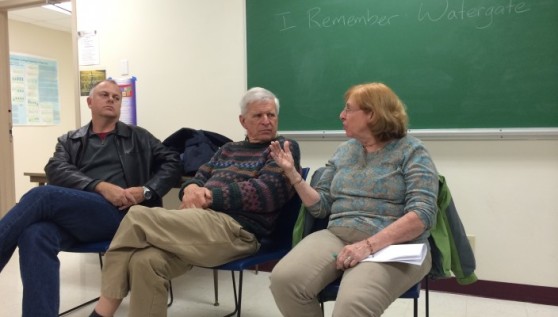
PBA professors share their memories and impressions from the Watergate era. (From left: Dr. Gary Poe, Dr. Jack Calhoun, and Dr. Peggy VanArman) (Photo taken by: Victoria Vartan)
Nixon was not the only one who was affected by the Watergate scandal. So, what was Watergate and what were the events that led Nixon to resigning as president?
The History Department held an “I Remember” event where about twenty Palm Beach Atlantic University students heard Drs. Poe, VanArman, and Calhoun share their memories and impressions from Watergate.
“He was worried about winning,” Calhoun said.
Calhoun believes that Nixon did not have to do anything and that he was just paranoid.
“People were shocked when he made his, ‘I am not a crook’ speech,” Poe said. “But I think the people were glad to move on and start with a clean slate.”
Poe said Watergate sticks out in people’s minds. Calhoun said Watergate made us a lot more cynical towards politicians.
“Nixon was seen as the conservative Christian at the time,” Poe said. “He was kind of the standard evangelical person.”
Calhoun said that before Watergate, Nixon was known as “Tricky Dicky.”
“In later years, Nixon tried to purchase an apartment on Park Avenue in New York City,” Calhoun said. “The residents all voted no. While in California, he had a famous quip to the press saying not to bash around anymore.”
Nixon never admitted he did anything wrong till the bitter end, Poe said.
